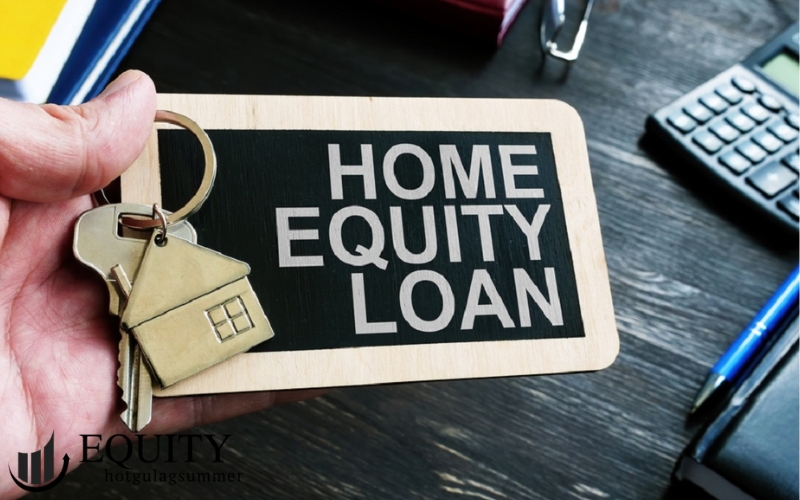Home equity is an important concept in finance and real estate, representing the portion of the value of a home that the owner actually owns. Understanding home equity is the first step to managing this asset effectively, especially when considering the insurance implications. In this article, we will explore this concept and how it relates to insurance.
WHAT IS HOME EQUITY?
Home equity is the portion of the value of a home that the owner actually owns, after deducting the remaining debt from the mortgage. Simply put, if you buy a home and have paid off some of the debt, home equitys is the value you have paid into that home. For example, if your home is worth $500,000 and you owe $200,000 on your mortgage, your home equitys is $300,000.
Home equitys can change over time depending on a number of factors, including changes in the market value of your property, your monthly mortgage payments, and your interest rate. As you pay more money toward your mortgage or as the value of your home increases, your homes equity increases. This can create opportunities for you to borrow money against your home, through products like a home equitys loan or a home equitys line of credit (HELOC).
THE LINK BETWEEN HOME EQUITY AND INSURANCE
The link between home equity and insurance may not always be obvious, but it is important when it comes to protecting your assets. First, home protection is essential for any homeowner. A home is a valuable asset, so home insurance is an essential part of protecting this asset from risks such as fire, natural disasters, theft, or damage due to external factors.
HOME INSURANCE AND HOMEOWNERS INSURANCE
Homeowners insurance protects your home from unexpected events that can cause property damage. However, home insurance not only protects your home but also protects your finances when faced with risks. In the event of a major loss or damage, home insurance will help you reduce the financial burden. However, if you do not have enough home equity, meaning you still have a lot of debt, the insurance may not be enough to protect the entire value of the property.
Once you have paid off a large portion of your mortgage and own a large portion of your home, you will feel more confident about having home insurance, as it protects the portion of your property that you actually own. This is important because if your home is damaged or lost in a disaster, insurance will pay for repairs or reconstruction, helping you retain the equity you have built up.
HOME EQUITY AND MORTGAGE INSURANCE
Another important aspect of homes equity is when you use it as collateral for other loans, such as home improvement loans or loans to pay for other needs in life. However, if you are taking out a mortgage using your home equity, protecting this asset becomes even more important. Home insurance will ensure that if something happens to your home, you will not lose the wealth you have accumulated over time.
If you are borrowing money from your home equitys, such as through a home equity loan or HELOC, having insurance will help ensure that if something happens, the loan will not become a huge financial burden. Without adequate insurance, you could find yourself in a difficult situation where you have to pay back the loan without having the resources to rebuild the property.

TYPES OF HOME EQUITY INSURANCE
There are several types of insurance you should consider to protect your home equitys. Here are some examples:
Basic Homeowners Insurance: This is a basic type of insurance that protects your home against risks such as fire, natural disasters, and theft. It helps protect your assets, including your home equitys, if something happens.
Mortgage Insurance: If you have a mortgage, this type of insurance protects the bank or lender in case you are unable to repay the loan.
Umbrella Insurance: This is an additional type of insurance that protects you from legal and financial risks beyond the regular home insurance coverage. It will help protect you financially if something unexpected happens.
BENEFITS OF HAVING HOME EQUITY INSURANCE
Having adequate insurance coverage when owning an equity stake in your home has many benefits, including:
Reduced financial risk: Insurance helps you avoid having to bear the full cost of repairs or reconstruction of your home in the event of an incident. This helps you maintain your home equity.
Increased peace of mind: When you have adequate insurance, you will feel more secure about your property, knowing that your unexpected property is protected against incidents.
Money support for mortgages: When you have insurance, credit institutions will feel more secure when you borrow money from your home equitys, knowing that your property is fully protected.
CONCLUSION
Home equitys and insurance have a close relationship, because insurance helps protect the assets you have accumulated over time. Understanding the concept of home equity and combining it with the right types of insurance not only protects you from unexpected risks but also helps you maintain and increase the value of your assets in the future.
